Planting buckwheat has been surprisingly good at creating lots of unexpected benefits in my vegetable garden. PLUS, growing buckwheat plants is super easy.
Be sure to check out this handy guide on watering vegetables the right way.
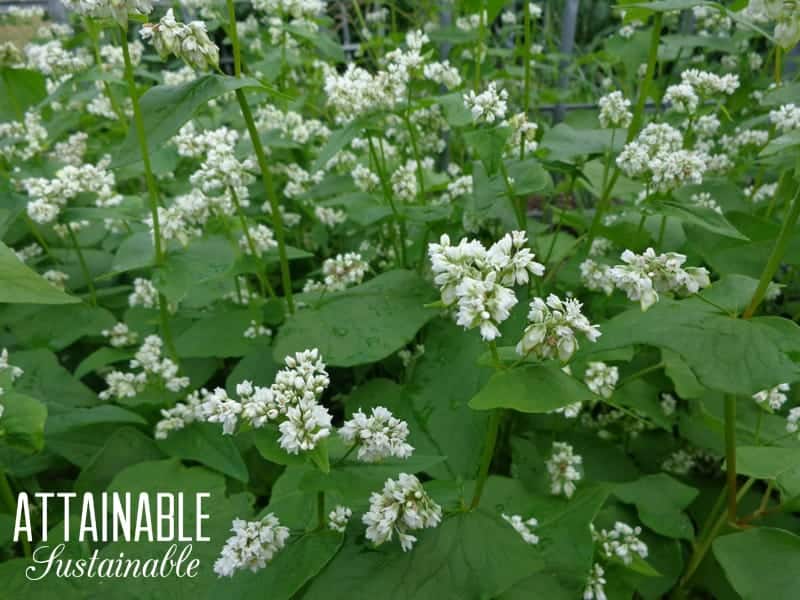
When a farmer I know mentioned a couple of years ago that he uses buckwheat plants alongside his crops, I was intrigued. I peppered him with lots of questions. I’d never heard of this tactic, one he claimed would help deter pests.
So of course, I decided I had to grow buckwheat. Let me tell you: It’s been awhile since I’ve tried something completely new and had it work so well.
New to gardening? Limited on space? The 5-Gallon Garden gives you the skills you need to grow food in the space you have. Get started with your garden today!
What is buckwheat, anyway?
It’s not considered a grain — grains come from grasses. Sometimes it’s called a pseudo-cereal. Poor buckwheat has a bit of an identity crisis. It’s a starchy seed harvested from a flowering plant. Buckwheat is not a low-carb option, even though it’s technically grain-free.
Is buckwheat gluten free?
Yes. Buckwheat is naturally gluten free, despite the fact that it has ‘wheat’ in its name. Buckwheat and wheat are from two different botanical families. Believe it or not, buckwheat is related to rhubarb!
Grow Some Greens!
Ready to grow fresh greens, no matter WHERE you live? Sign up for my
FREE quick-start guide and start growing some of your own food!
When to plant buckwheat
Buckwheat prefers moderate temperatures and does well in 70-degree weather. When to plant buckwheat in your garden will depend a bit on your local conditions. Planting buckwheat in the spring and fall will provide the conditions it likes, as well as providing some benefits for your newly planted seedlings.
We don’t have hot, harsh summers like many gardeners do, so I’ve had luck starting it any time between March and November.
If, like me, you want buckwheat to grow between your garden veggies to help deter pests and hold down weeds (see below) allow the veggie seedlings to get a couple of inches high before scattering the buckwheat seeds.
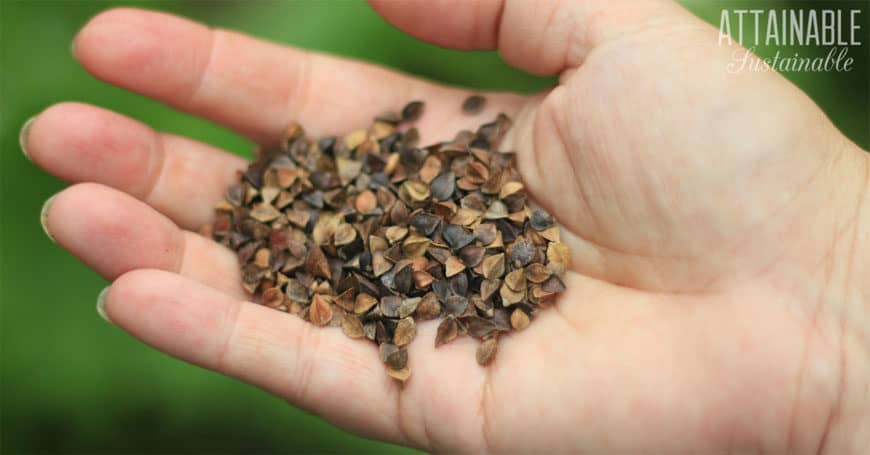
How to plant buckwheat seeds
Buckwheat seeds are dark brown, kind of triangular seeds, about an 1/8′ across. I purchase mine at the health food store in their bulk section.
You don’t need to manually plant buckwheat seeds in rows or holes or whatnot. I simply scatter buckwheat over a raked, weed-free bed; it won’t outcompete aggressive weeds. Maintain steady moisture, watering a couple of times a day if necessary to keep the seeds damp.
Germination will happen in the first week, with round leaves emerging from the soil. Note that buckwheat seeds can be grown and harvested as microgreens, too!
Buckwheat cycles through its growth process quickly, going from seed to flower in six weeks, ending its life cycle by producing more seeds in just 13 weeks.
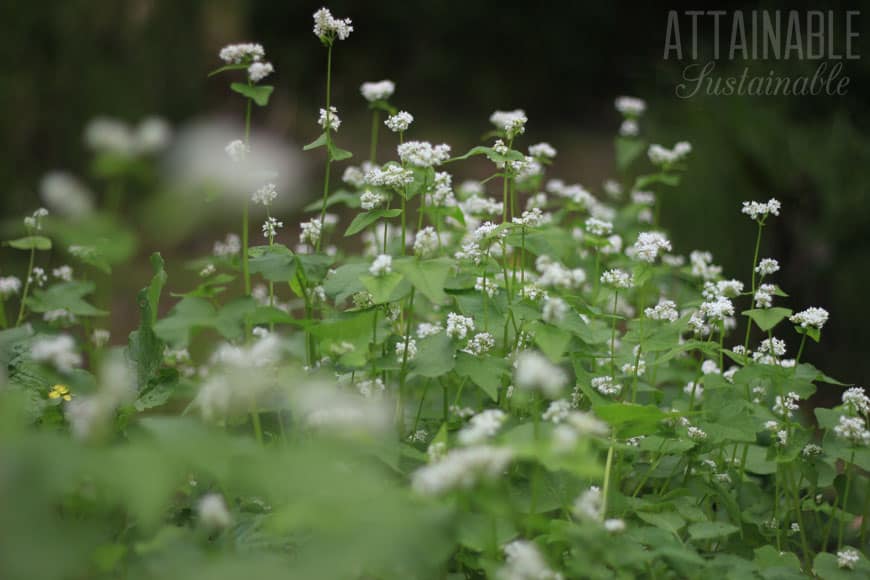
9 Good reasons to plant buckwheat in your garden
Now that you know more about buckwheat, here are nine good reasons planting buckwheat in your garden makes good sense!
1. Planting buckwheat deters pests
Scattered alongside newly sprouted vegetable seeds or starts, the buckwheat seeds quickly take root, reaching its 12-15″ height in just a couple of weeks.
Flying pests find it difficult to maneuver through the lush growth of the buckwheat plants to reach their intended target. What this has meant in my garden is that cabbage moths can’t lay eggs on my kale plants (image below), giving them a chance to really get established before they outgrow the buckwheat. I’m hoping that similar holds true as my summer squash starts to bloom.
If I can prevent the night-flying moths that produce pickleworms from reaching the flowers, I might just have a shot at growing cucumbers and melons, too.
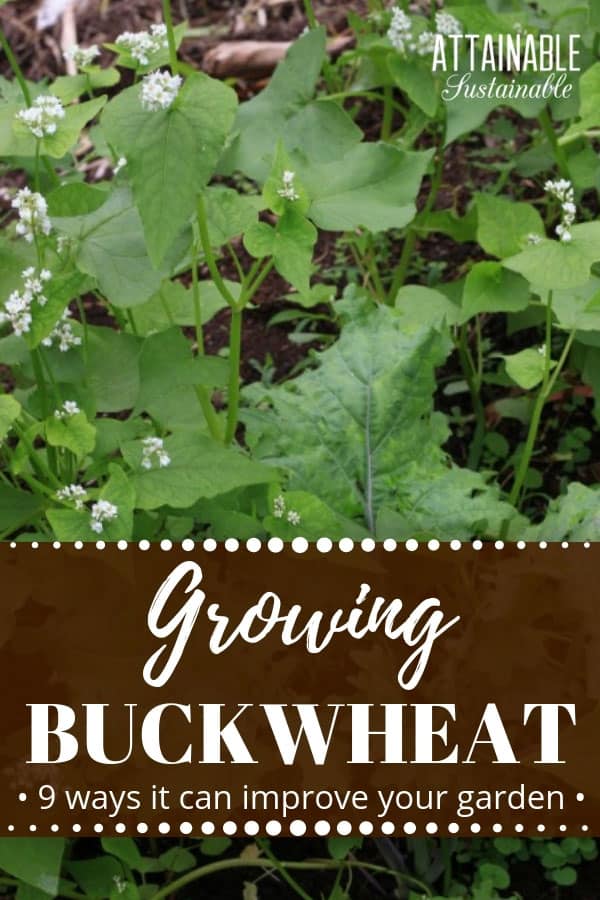
2. Growing buckwheat plants to attract beneficial insects
Honeybees have become a rare enough site that spotting one calls for excitement.
Since my buckwheat started blooming, honeybees appear in multiples alongside hover flies and other pollinators. And while they’re here enjoying the plentiful flowers, you know they’re helping to pollinate my veggies, too.
Related:
- Natural Weed Control – 11 Ways to Kill Weeds Without Poison
- Perennial Vegetables and Fruits: Plant Once, Harvest for Years
- Grow Your Own Food: Vegetable Planting Guide
3. It makes great animal fodder
If it looks like some of my plants are too shaded by the 12″ tall plants, I clip some to allow a bit more sunlight in. Those clippings go straight to the chickens — they love the greens!
4. Buckwheat is edible
In and of itself, it can be a crop for gardeners who have the patience to process it. Ripe buckwheat seeds easily fall off the plant. Once the chaff is removed, use a grain mill to turn the seeds into flour. If you don’t want to mill the buckwheat into flour, you can grow buckwheat microgreens.
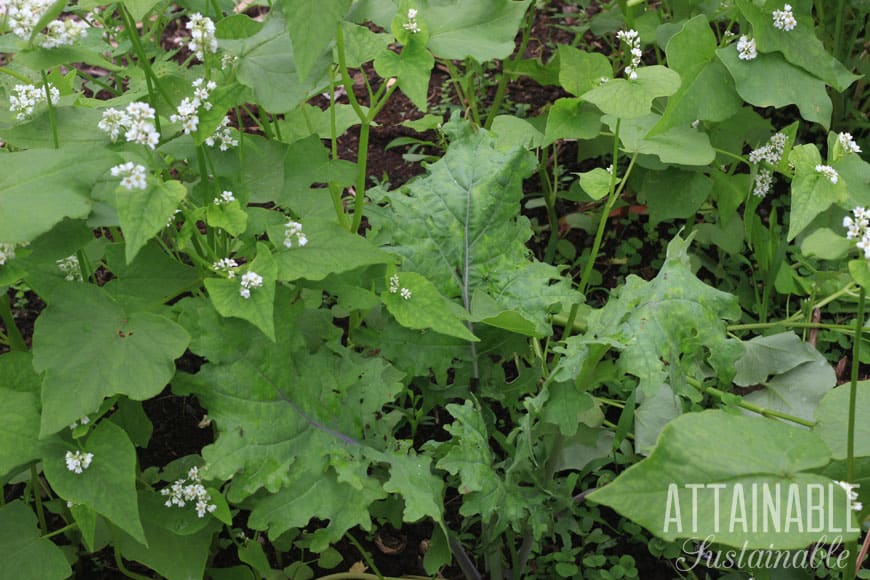
5. Buckwheat reseeds itself
If you’re organized about it, you can collect the seeds to control where it pops up next. If you’re a little more casual about things, like I am, you can let Mother Nature do her thing and just let the seeds fall.
To get started, you can buy basic cover crop seed or—if you’re planning to harvest a crop—choose an heirloom variety of buckwheat seeds for better taste.
6. Growing buckwheat plants as a green manure crop
If you want to juice up your soil a bit, scatter seeds on a fallow garden bed or planting area. When it’s about a foot high, use the “chop and drop” method or till it in.
It’s also great at extracting phosphorus from insoluble sources, so planting buckwheat helps to improve the soil.
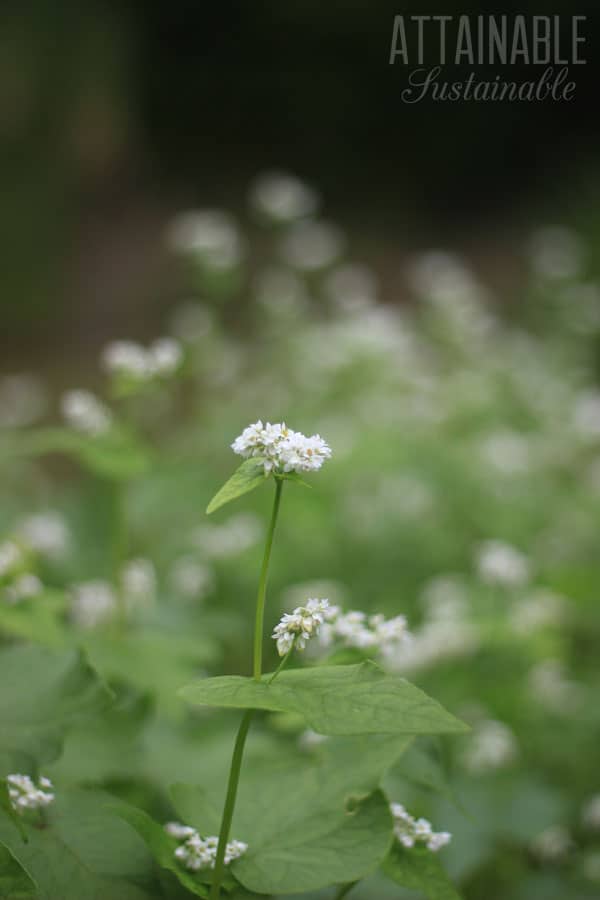
7. Buckwheat keeps weeds at bay
It grows so quickly that the plants shade out many weeds before they have a chance to take hold. Growing buckwheat plants helps with weed control!
8. Buckwheat seeds are handy little buggers
You can dry the seeds you harvest and use them as filling for a traditional Japanese pillow, an aromatherapy eye pillow, or a homemade heating pad.
9. Grow buckwheat simply because it’s pretty
Even if it didn’t deter pests or help build soil or feed my chickens, I’d plant it. The soft green is a beautiful way to fill in bare areas.
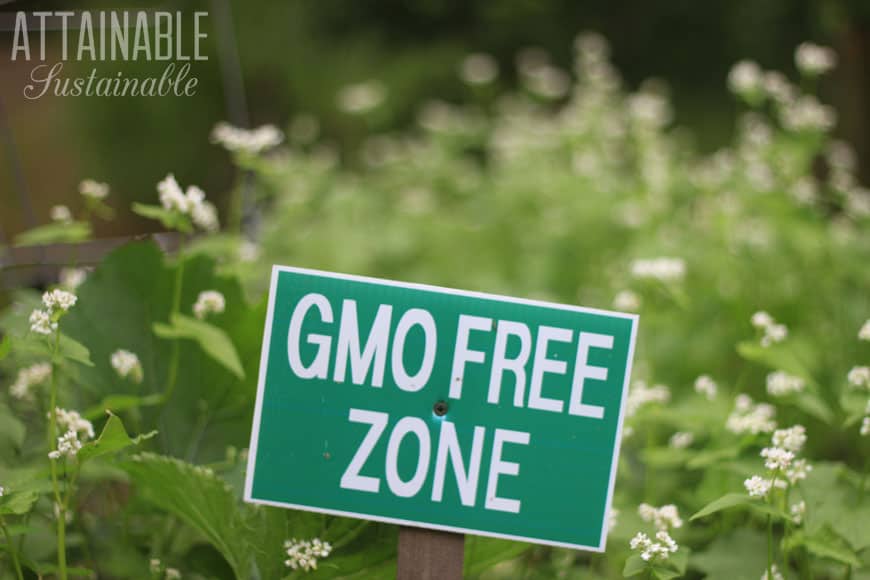
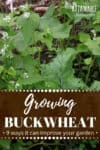


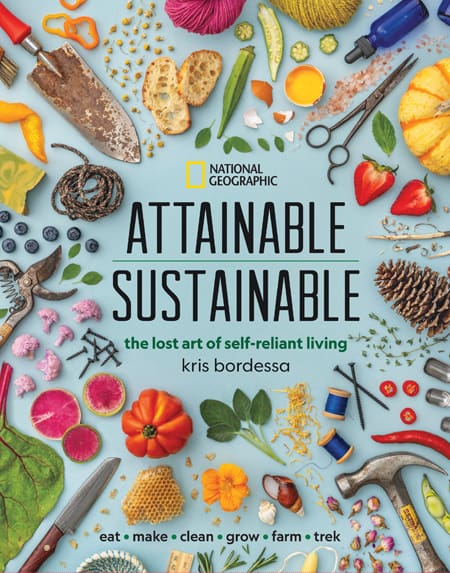
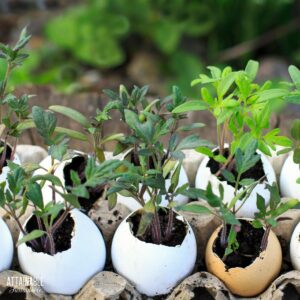
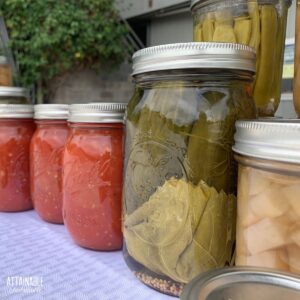
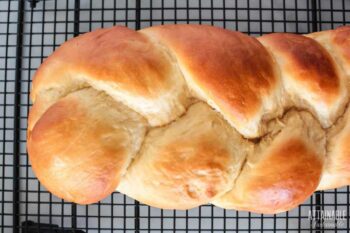
Will Buckwheat loosen clay soil ?
I think it couldn’t hurt, certainly, but not sure if it would actively loosen the soil.
Try a legume as they have deep roots. Fava beans or broad beans.
Buckwheat can make the soil easier to till. Moreover, it can produce flour for making pancakes, and if you’re gluten-free, growing this cover crop is undoubtedly a nice thing to consider. The ideal growing season for this plant is spring, though summer and early fall are also possible.
All good points to consider!
I am about to retire, so I need something to do, alone with garlic,ginger,asparagus,strawberries, I am going to pasture chickens, use Buckwheat as a pasture treat & for my honeybees.
Thanks for the article.
JOLJ
I feed the grain (fermented) as part of my chicken ration, and sprout it as well for the ration. Going to try is as a soil boosting cover crop for the garden, with the added benefit of growing greens for the flock as I thin them. Possibly let some grow to harvest enough to never have to buy it ago!
Hi! Is James Buckwheat something that I can use in the veggie garden as you have to control weeds and pests? Thank you. Carol
No, this is different.
My husband and I eat buckwheat (nearly) everyday for breakfast. Like oatmeal but not. We are gluten free and this is a great breakfast for us. We add Chia seeds and flaxseeds, little oil, sometimes fruit, and salt — and boom. done in less than 20 minutes. 🙂
Buckwheat pancakes are the best, I have been making them for a number of years. I also cooked the raw buckwheat groats in place of rice. Delicious.
Look for buckwheat with pasta recipe in Jewish cookbook. Kasha Varnishkes. Yum!
could you send me the recipe for the pancakes?
thanks
Yes, I love buckwheat pancakes and as a breakfast cereal. Now my grandsons do too!
Good evening.
For those of you that have not eaten buckwheat pancakes,
pick up a box of buckwheat flour from your grocer. You will
not eat wheat flour pancakes again. Cheers, Cap Carl
good evning
Any idea if seeds need to be dried to use again? We are growing buckwheat in a greenhouse currently and would like to use the seeds from our current plants to start another planting of buckwheat?
They’ll self sow if you let them drop to the ground, so I don’t see why you can’t.
Can the leaves of the buckwheat be eaten like spinach? Wonderful it it is true.
There’s a good conversation about this here: https://permies.com/t/58759/kitchen/lentil-buckwheat-greens-edible
I think it toxic to dogs. Any word on this? I was going to plant some and stopped after stopped after read this detail. My dog likes to munch on stuff in the garden.
ASPCA says it’s toxic to dogs, cats, and horses. https://www.aspca.org/pet-care/animal-poison-control/toxic-and-non-toxic-plants/buckwheat
I am impressed
You can also eat the leaves, use like spinach.
Buckwheat honey is also considered a delicacy and can be used it gingerbread making in replace of molasses. Buckwheat pancakes are nice too! Thx for sharing this great article.
Thanks for the great information. I will definately be planting buckwheat.
I’m new to gardening this season and I already have veggie seedlings started indoors. I’m going to move them outside once it is warmer, but how should I add the buckwheat ? What I mean is, should it be planted in rows? Around? I don’t have a very big plot for gardening, it’s about 5ft x 8ft.
Let your seedlings get a head start; buckwheat grows fast and will outpace them quickly. Once they’re established, just cast handfuls of buckwheat over the garden bed.
How can I incorporate this into a square foot raised garden? If I can only technically plant, say, 2 kale plants per 12 inch square, can I still plant the buckwheat around it without harming the kale plants by taking up their space or nutrients? Thanks!
Good question! Maybe you can’t? (I’m not a square foot garden expert at all.) Maybe someone will chime in. For sure, plant it *around the garden for the bees.
I’m searching for land to purchase this next year and buckwheat will be one of the first things planted. I plan on planting an acre of it and having several beehives in that field. for buckwheat honey, a high demand honey that sells for about $13.00/pound currently.
Almost every part of the plant can be used if you want to process it.
One warning…buckwheat can be toxic to some animals: dogs, cats, horses and alpaca to name a few so use caution with where you plant it being mindful of animal visits.
Thanks for that warning!
Thank you for the warning about its toxicity! We have horses and I was going to use this to build up future pasture grounds. Glad I read your comment. Much appreciated!
is buckwheat harmful to goats?
I don’t know the answer to this question.
Buckwheat not only makes a good cover crop for soil amendment, but we planted it, along with yellow sweet clover, for our bees. The combination made a mellow dark honey that was just fantastic.
I planted buckwheat last year and let it re-seed naturally this year. It is a pretty plant I love it in the spring and throughout the summer. It sprang up around, my first ever attempt to grow potatoes this year. I have had absolutely no pests problems in my six baskets of spuds, not one chewed leaf or weird fungi or anything. It is lovely and helpful.
That is so cool!
I’ve been planting buckwheat for a few years now, and thought I’d add a few things:
1) It grows very well in ALL kinds of soil, making it a great choice to plant in areas where other plants don’t grow so well.
2) It’s a “quick crop,” taking only 4-6 weeks from planting to flowering.
3) it’s a great crop for food plots to attract deer. They love to eat their way along the tender greens, but the buckwheat weathers this foraging very well.
4) This was noted above, but to reinforce, there is no better plant for pollinators. I can tell when my buckwheat blooms by watching the entrance to my beehives, and the honey that comes from buckwheat is some of my favorite.
5) It’s inexpensive. I get mine from the local farm bureau or elevator, and I get a 50 lb bag for $1/lb. This gives me about 1 acre of buckwheat, maybe a little less.
And exactly WHY would having deer love being in your garden a GOOD thing? I’ve not discouraged deer so far on my place, but I really haven’t had much of a garden to protect. This year, I had some volunteer tomatoes crop up, and yesterday, they were GONE! Eaten by those same deer you seem to think are a good thing in a garden! Anyway, thanks for the heads up on that particular point, now I don’t know if I want to plant it or not……;-(
I’m with you – I want the deer outside of the garden. When I read that I assumed Sean meant that the buckwheat – planted elsewhere – might attract deer away from the veggies.
I’m not sure if it is what Sean meant but if you had acreage set aside for hunting purposes, it would provide inexpensive, self-propigating fodder for grazing your future food source. Deer are also fond of red clover.
Some people plant dedicated plots for the deer to keep them away from their other plots, plus it gives them a source of food since humans keep destroying their habitats.
Actually, humans have *created* habitat for deer as they do not thrive in the woods, but only bed down in them. They need open field and such for grazing. Consequently, there are now many more deer in the US than when the first settlers arrived and began clearing ground for farming. Also, lest you think this is only my opinion, this is backed up by all studies by those who pay attention to deer populations.
Where I can I find buckwheat seeds, I don’t remember seeing them in the seed section at the store.
I get mine in the bulk section at the healthfood store, but they’re also available here: https://amzn.to/1uHbqtx
Heirloom buckwheat seeds at Baker Creek Heirloom Seeds. http://Www.rareseeds.com
TWENTY TWO DOLLARS A POUND!
I get mine at the health food store for substantially less!
We got ours from Baker Creek in a pack for maybe 3 $. Just buy a single packet then let them self-seed.
Bakker Creek has packets of red and pink seeds.
I also have buckwheat in my garden. I love it! I planted it at home in town for seed harvesting and on our land in the country as green manure to better the soil since we have red clay and we are planning to start a vegetables farm next spring. In town, we didn’t get too many bees, but on our land in the country the field is full of buzzing bees. They say that bees produce dark (almost black) honey when drinking from the buckwheat. I would love to taste that.
Maybe I should invite a beekeeper to come set up hives!?
My mom’s favorite honey is buckwheat honey. She says it is the absolute tastiest and richest honey by far.
buckwheat honey is a wonderful honey but it has a strong taste and is less sweet tasting then other honeys. i love it on homemade bread fresh from the oven. another bonus is because its stronger tasting i find i need to use less which is great since i am diabetic. buckwheat is also great at keeping my blood sugars under control. i have no idea if this will be true for everyone but if i eat it often i have MUCH better readings. the internet says it improves insulin sensitivity but you really cant believe everything you read online. its working for me tho.
I have been growing buckwheat for five years. It is the gift that keeps on giving. It self seeds itself in lots of places. In the north, it is best to seed it in June for a fall harvest. It is a cool weather plant.
The bees adore it. Unfortunately, I haven’t seen the benefits of reduce bug population. This year the patch was pretty close to my pumpkin, zucchini and squash but that dreaded squash bug and borer are very happy reeking havoc on my plants. 🙂
I still have squash bugs. 😉 The buckwheat seems to deter the flying pests like cabbage moths more than anything. I’ll take what I can get!
I find Amaranth in companion planting pulls cucumber beetles away from my cucumbers and squash. Apparently it tastes better.
Amaranth is also great to plant with tomatoes.
I have heard that wheat germ sprinkled around the base of each squash plant will help with the squash bugs. The bugs will eat the wheat germ and then it expands in their stomachs causing them to basically blow up. I am not a violent person but when it comes to my squash plants I don’t mind a few explosions like this. I was told this from the owner of an organic garden store who heard it from a wise old farmer. I haven’t needed it this year as I have a small crop so I simply make a morning walk and kill what I see but I will definitely remember this method for the squash bugs.
Thanks for this information. I have only planted buckwheat as a winter crop, to improve the soil, but will start to make it a regular in my garden.
Great post about the benefits of Buckwheat!
One of the nice features about using Buckwheat as a cover crop is that the plants are quite tender and have hollow stems. They decompose rapidly, so it’s possible to plant another crop without a long wait.
Great to know! Definitely going to be trying this!
We have 2 buckwheat patches we established in our community garden this year. One was planted early and in part shade, it’s already gone to seed and flopped over. We’ll chop it this weekend and till it in to loosen and amend the soil. The other patch is a bit younger, in full sun and off the CHART! It’s close to 5 feet tall, densely packed with flowers and COVERED with bees… the first time we’ve seen honeybees and native bees in *abundance* in our garden this year. I’ll leave it be(e) until the flowers are gone and chop that up too. I don’t have too many problems with reseeding, as we get our garden fall plowed and folks get in early if they can to work the soil and plant. But it’s easy to pull if you don’t want the seedlings. We love it as a cover crop and a beneficial insect magnet.
Good to hear it’s working for you, too!
Helpful to know it’s easy to pull. Thanks.
Oh my. I hope this is the answer I’ve been looking for (sighs at bare kale babies).
I’m not growing *much yet at my new place, but the kale is doing well and not chewed to bits!
Hi,
Nice ideea, but when should I sow it, if I use toghether with my veggie?
Thank you very much for your info.
Irina
I scattered seeds when my veggie seedlings were about an inch high.
Thanks so much, I didn’t know it was so easy to grow! I love the bwheat flour and cereals in addition to using the shells for pillows. 🙂
It is TRULY super easy to grow!
Wow! I will have to try,I’ve heard of Buckwheat pancakes,and flour.This is new,sounds great thanks
Buckwheat ended up in my garden between Cucumbers and squash totally by accident this year – I went looking for Barley seed to grow some out for seed/feed for the chickens for this winter and the Co-op suggested the Buckwheat instead as they didn’t have Barley Seed. So I tried it and boy have I noticed a huge difference in the Squash & Cucumbers this year. I am planning on adding more of it elsewhere in the garden next year. Also excited to try and mill it and see how I can use it. Never had Buckwheat Flour before so it’s an all around new experience for me that I am loving so far. The plant looks nothing like I expected a wheat type plant to look like but gosh it is AMAZING!!
Oh, I’m glad to hear it’s working so well for you. I’m LOVING it!
Buckwheat is not a wheat plant, it is related to Rhubarb.
Yes, and buckwheat flour is actually okay for those who are allergic to wheat.
So how do I protect the rhubarb? Are the holes from insects or slugs?
Hard to say. Maybe go out at night with a flashlight and see if you can identify the pest? I’m a fan of diatomaceous earth (food grade, not the kind you use for pools) for creepy crawlies.
why when I tried D…..earth did I have the ground covered with dead worms in the garden?
Worms would be impacted by DE, certainly, but only if they were at the surface where they’d come in contact with it. I’ve never seen this happen!
Buckwheat is indeed not a wheat, it is a seed. Gluten free food.
I love to garden, so it is great to see what new plants I can add. Great post, thanks for sharing!
Buckwheat is on my short list of plants I want to establish to attract beneficial insects. It is supposed to be great for attracting hover flies and tachinid flies. Both are great for controlling insect pests. Thanks for the blog post.
I’ve been SO impressed with how it attracts beneficials!